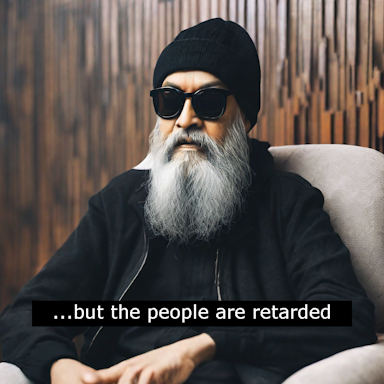Welcome back, isonomists:
In today's world, a pervasive discontent with politicians and traditional governance systems prompts a critical examination of the efficacy of democracy as the epitome of political structures. This blog post seeks to scrutinize the pitfalls of current politics, address global issues, and introduce the isonomic model as a potential remedy. Drawing inspiration from influential thinkers like Alexis de Tocqueville and Bruno S. Frey, the isonomic model introduces Functional, Overlapping, and Competing Jurisdictions (FOCJs) to decentralize political power and foster more adaptive and inclusive governance systems.
Before we delve into the intricacies of the isonomic model, readers are invited to explore the Isonomic Manifesto currently being developed. It is available through our blog on the manifesto subdomain, offering an in-depth understanding of the principles guiding the isonomic model.
Questioning Democratic Norms
Despite the widespread belief in democracy as the ultimate political solution, it is imperative to question whether this perception is entirely justified. Alexis de Tocqueville (1805-1859), renowned for his work "Democracy in America," warned of the 'tyranny of the majority,' emphasizing the potential dangers of a system that prioritizes majority will over minority rights. The isonomic model aligns with criticisms of democracy as a 'mobocracy,' acknowledging the pitfalls of decisions driven by short-term interests and populism rather than long-term stability and justice.
Navigating the Israel-Palestine Conflict
The isonomic model offers a fresh perspective on the intricate Israel-Palestine conflict, proposing how its implementation might have influenced this protracted issue. Characterized by contested borders, settlements, and Jerusalem's status, the conflict has perpetuated a power imbalance and a lack of political will for a final resolution. Emphasizing decentralized yet cooperative regional jurisdictions, the isonomic model envisions addressing historical and moral legitimacy issues over the land. Through empowerment and equitable solutions achieved via multilevel cooperation, it strives to mitigate nationalism and resentment.
The Essence of Functional Overlapping Competing Jurisdictions (FOCJs)
At the heart of the isonomic model lies the concept of FOCJs, decentralized and cooperatively networked regional jurisdictions defined by shared interests and policy issues rather than rigid geographical borders. Inspired by Bruno S. Frey's (1941) work, FOCJs emerge organically, fostering self-governance through democratic participation and economic competition. This polycentric system aims to replace centralized top-down authority structures with inclusive, consensus-based solutions achieved through multilevel cooperation across various policy areas.
Addressing Political Failures
The isonomic model recognizes the incentives that often compel politicians to maintain the status quo and resist innovative approaches that challenge centralized power structures. This resistance leads to deepening grievances and a deterioration of trust, as observed in the Israel-Palestine conflict. A candid assessment of past shortcomings, open discourse, flexibility in approaches, and systems incentivizing inclusion and responsive decision-making are crucial to regaining public trust and preventing further harm.
Envisioning Just and Stable Governance
The isonomic model outlines a longer-term vision for a just and stable governance system that respects the diverse religious and ethnic character of a region. Through fostering multilateral coordination and dispersing authority among autonomous yet interacting entities, it aims to mitigate nationalism and resentment. The model seeks to cultivate cooperative solutions to shared practical challenges faced by communities through grassroots participation and new governing arrangements.
Conclusion
Amidst global discontent and the limitations of conventional governance, exploring alternative models like the isonomic model becomes imperative. Embracing the concept of FOCJs, we can decentralize political power, foster inclusivity, and find consensus-based solutions to complex political dilemmas. Despite persistent challenges, the isonomic model offers a glimpse of hope for a more just and stable world. It is high time to engage in open discourse, embrace flexibility, and work towards systems that genuinely empower the people.

